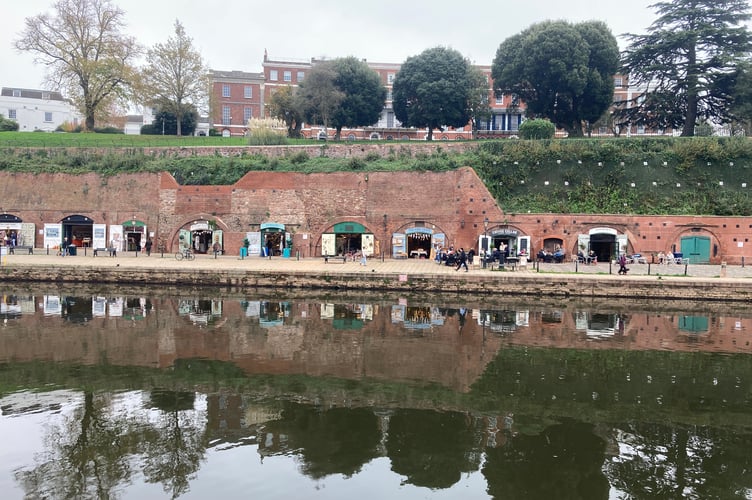
First stop on our visit to Devon’s capital was Exeter Quays and we learnt that the River Exe used to be tidal and navigable all the way to Exeter city walls.
Around 1270 Isabella, Countess of Devon built a weir to power her mills cutting off the port from the sea. Another weir was built in 1317 by Hugh de Courteney but finally John Trew completed his canal to rejoin the Exe in 1567.

Now it’s a lovely walk with plenty of craft shops and cafes.

Next to the city centre and the beautiful cathedral, the current one of which was completed in 1400.
It boasts a wonderful astronomical clock, a set of 49 misericords (medieval tip up seats) carved in the 13th century as well as the longest uninterrupted medieval stone vaulted ceiling in the world.
By the time you are reading this the Christmas Market will be in place.

History buffs will want to trace what is left of the Roman-built city walls which were built using very tough purple volcanic trap stone.
Another interesting building is the Guildhall on the High Street which was built around 1470 in ornate Italian style.

Finally the lovely Royal Clarence Hotel, which was burnt down in 2016, still lies derelict.




